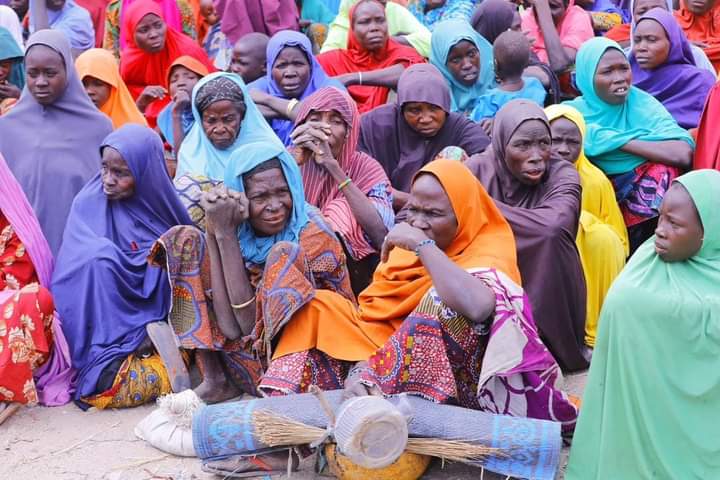Several displaced individuals in Borno state are considering returning to regions under the control of Boko Haram insurgents due to dire conditions in the IDP camps.
Echoing the sentiments of the IDPs, some relatives of repentant Boko Haram members have also voiced similar concerns, citing severe hunger and deprivation in the camps.
This trend emerges amidst widespread hardship across the nation, triggering protests by organized labor groups.
Similar to the IDPs, families of former Boko Haram insurgents blame authorities for neglecting the provision of essential resources, alleging a decline in daily necessities.
For them, life was comparatively more manageable under Boko Haram rule, leading to a perceived necessity of returning to such environments for survival.
They highlight the cessation of essential supplies and the absence of available farmlands for cultivation as significant challenges.
Expressing the severity of their situation, one displaced person in Dikwa lamented, “Some of our comrades here have opted to return to the wilderness because conditions in the camp are unbearable. We are simply enduring hardship here.”
Another individual emphasized the stark choice they face, stating, “We made the decision to leave our families behind and relocate to Boko Haram-controlled areas because it’s a matter of life and death, whether here or there.”
However, Borno state governor, Babagana Umara Zulum, dismissed the grievances as unfounded, asserting, “Those who wish to return to Boko Haram-controlled territories are at liberty to do so.”
